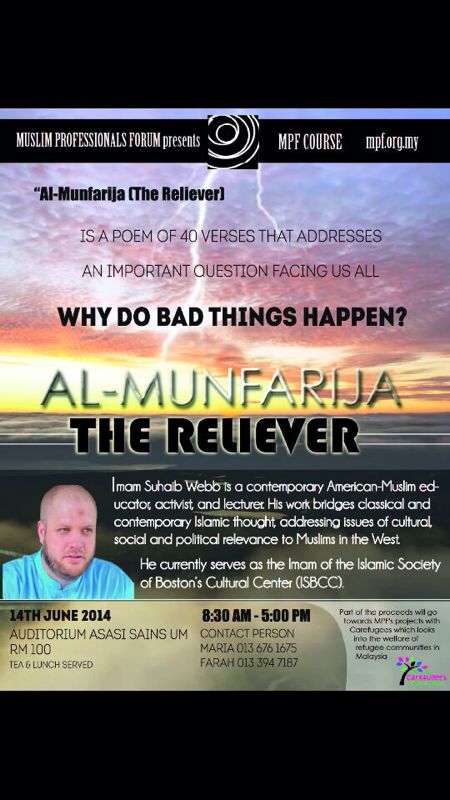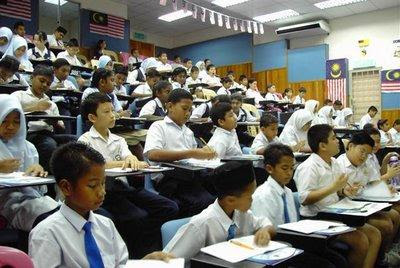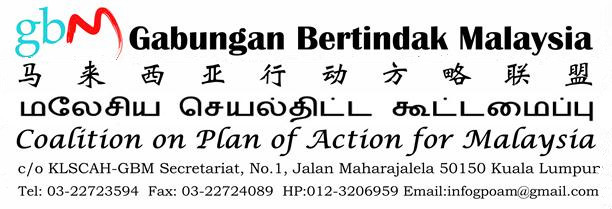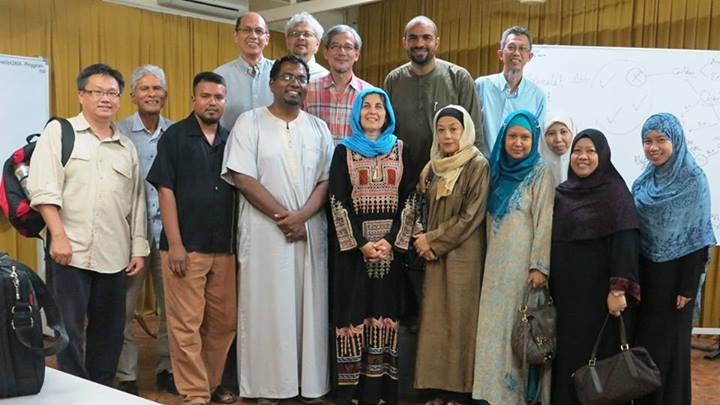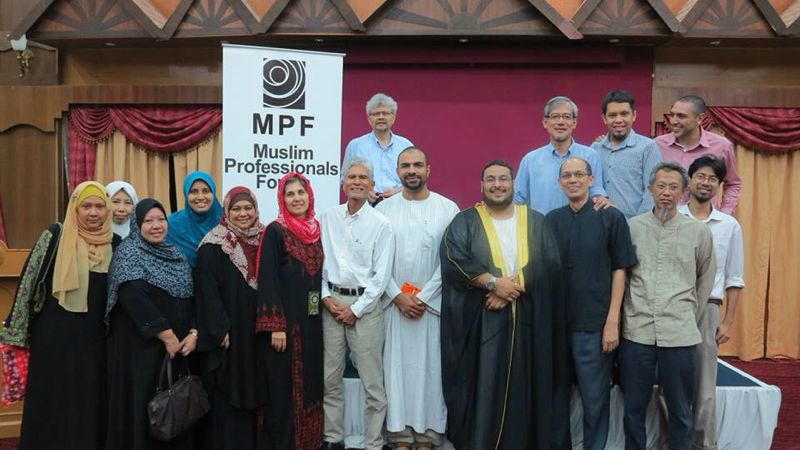11 June 2014 / 13 Sha’ban 1435
PRESS RELEASE: BIG ISSUE OVER PORCINE TISSUE
It looks like the porcine conundrum is making its rounds yet again. Suffice to begin the narrative by quoting a verse each from the Quran and the Hadiths which sums up the compassionate and humane nature of Islam.
Allah SWT says in Surah Al-Hajj 22:78; “And strive for Allah with the striving due to Him. He has chosen you and has not placed upon you in the religion any difficulty.”
And an authentic tradition narrated by Aisha (RA); “If given an option between 2 actions, the Prophet (SAW) would surely choose the easier one, as long as it is not sinful.” (Bukhari & Muslim)
And we firmly believe this spirit and approach pervades the corpus of the jurisprudence of facilitation (Fiqh Taysir). And at no point it time does it blemish the belief nor practise of the faithful because the scholars have anticipated these challenges of modernity and have reiterated, “Allah will bless the believer who recognises and engages with the new world, yet remains true to his religious values.”
History will testify that the Muslim scientists dominated virtually all aspects of knowledge and research from 600 – 1700 AD. Az-Zahrawi (930-1013 AD) the father of modern surgery was pioneering new surgical instrumentations when Europe was restricted by a religious edict in 1163 AD which instructed as follows; “All forms of surgery must be stopped in all medical schools by all surgeons.”
Is it any wonder that Martin Kramer, an American Historian wrote; “Had there been Nobel Prizes in 1000, they would have gone almost exclusively to Muslims.”
Somehow, the Muslims lost it along the way but the following hadith continues to inspire Muslims to catch up on lost ground and rejuvenate their quest for leadership in the sciences; “A word of wisdom is the lost property of a Muslim. He should seize it wherever he finds it.” (Tirmidhi)
It is in this vein that the contemporary Muslim scholar, Syakh Yusuf al-Qaradhawi has said to the effect; “Two areas of human activities (muamalat) which requires cutting edge edicts (fatwa) are economics and medicine.”
Hence, it is not surprising that the many Councils of Jurisprudence, all over the world, eg European Council of Fatwa & Research (ECFR) chaired by Syakh al-Qaradhawi, has deliberated profusely on the many issues related to medicine and biotechnology. These Councils like the ECFR were kept informed of the latest and best practices in medicine by regular meetings with the likes of the Islamic Organisation of Medical Sciences (IOMS) based in Kuwait.
To illustrate the “cutting edge fatwas” that emanated from IOMS, the issue of human cloning is a pertinent example. In 1981, whilst deliberating on issues related to In-Vitro Fertilisation (IVF), two papers were presented discussing the probability and permissibility of cloning humans. Then the science was at the level of cloning plants and marine life. Sixteen years later, Dolly the sheep was cloned in 1997 and the IOMS immediately updated their human cloning fatwa, whilst the scientific world were still bedazzled by this new science.
The issue of the use of substances of porcine origin in food and medicine is an archaic one. Nonetheless, the ECFR has comprehensively dealt with it, when deliberating the permissibility of the use of Oral Polio Vaccine (OPV) which is manufactured using porcine based trypsin. This was published in their 11th Session of the ECFR held from 1-7 July 2003, in Stockholm.
The ECFR argued as follows:
a) what God forbids is the partaking of pork, and trypsin has nothing to do with pork
b) even if we admit that trypsin is forbidden, the amount used in preparing the vaccine is negligible, if one applies the rule that “when the amount of water exceed 2 qillas (343 litres)”, impurities no longer affect it”
c) supposing that trypsin is unclean, it is thoroughly filtered, that it leaves no traces whatsoever in the final vaccine
d) in case the three arguments forwarded are still insufficient, the haram (forbidden) is made permissible in cases of necessity.
In their concluding remarks they emphasized, “The Council urges Muslim leaders and officials at Islamic Centers not to be too strict in such matters that are open to considered opinion and that bring considerable benefits to Muslim children, as long as these matters involve no conflict with any definite text.”
Such is the latitude of rationale and magnanimity of our religious scholars (fuqaha) in addressing the bigger picture of child health, child survival strategies and the advocacy of life saving vaccines.
In an even much earlier seminar in 1995, the Eastern Mediterranean Regional Office (EMRO) of the World Health Organisation in collaboration with IOMS deliberated on “The judicially prohibited and impure substances in foodstuffs and medicines.” This was attended by 112 religious scholars and medical experts.
Amongst others, the IOMS issued the following recommendation in relation to bio-transformation (istihalah); “Transformation which means the conversion of a substance into another substance, different in characteristics, changes substances that are judicially impure, or are found in an impure environment, into pure substances, and changes substances that are prohibited into lawful and permissible substances.”
Accordingly IOMS added; “The gelatin formed as a result of the transformation of the bones, skin and tendons of a judicially impure animal, is pure and judicially permissible to eat it.”
This is essentially back to basics biochemistry, whereby the gelatin through a process of hydrolysis is broken down to a mixture of individual amino acid which is not specific to any animal species. Bovine sources of animal collagen is specifically avoided based on safety reason to prevent the risk of Transmissible Spongiform Encephalopathy (TSE).
The regional director of EMRO wrote to all 22 countries and territories in the Middle East, the North Africa, the Horn of Africa and Central Asia the following instruction; “In the light of the above (fatwa); you may wish to issue a statement that includes this legal opinion, in order to relieve all Muslims in the nation, whether adults or youths, men or women, from the embarrassment they feel when taking drug gelatinous capsules and similar gelatinous capsules as vitamins…”
We have learnt and read fatwas from religious scholars in Malaysia which unlike the ECFR and IOMS etal are individual-centric, random, ill-researched and anecdotal in nature. Their lack of grasp and understanding of the new science have made them ultra-conservative, restrictive and prohibitive in their religious edicts.
The Federation of Islamic Medical Associations (FIMA), Ikram Health (IH) and the Muslim Professionals Forum (MPF) have endeavoured to mainstream evidence based medicine (EBM) of the highest quality and which should henceforth dictate our best clinical practices. And importantly, it is sanctioned as Shari’ah compliant by the highest authorities of jurisprudential scholarship among Muslim scholars world-wide. This excellent collaboration of the best brains in medicine and jurisprudence has lightened the burden upon the Muslim Ummah (community). It has not only truly embraced the jurisprudence of facilitation (Fiqh Taysir) but also the jurisprudence of realities & priorities (Fiqh Waqi’ah) and the jurisprudence of balance (Fiqh Wasatiyah).
All of these are undertaken in response to the call of Allah in Surah an-Nahl 16:90 which reads; “Allah commands doing justice, doing good to others…” This is primarily the end point of the Maqasid as-Shari’ah (priorities of jurisprudence), which is the transformation towards justice and the preservation of public interest (maslahah ammah).
We urge the religious authorities to take cognisance of the invaluable heritage of medical fatwas that is before us and not attempt to reinvent the wheel. They should instead incorporate these shari’ah compliant best clinical practise into the corpus of our nation’s jurisprudence in medicine.
Issued by:
Dato’ Dr Musa Mohd Nordin FRCPCH (UK)
Chairman, Federation of Islamic Medical Associations (FIMA) Advisory Council
Dr Mohamed Fauzi Abdul Rani FRCP (UK)
Chairman, Ikram Health (IH)
Tuan Haji Yuzaidi Yusoff
Chairman, Board of Directors, Muslim Professionals Forum (MPF)



